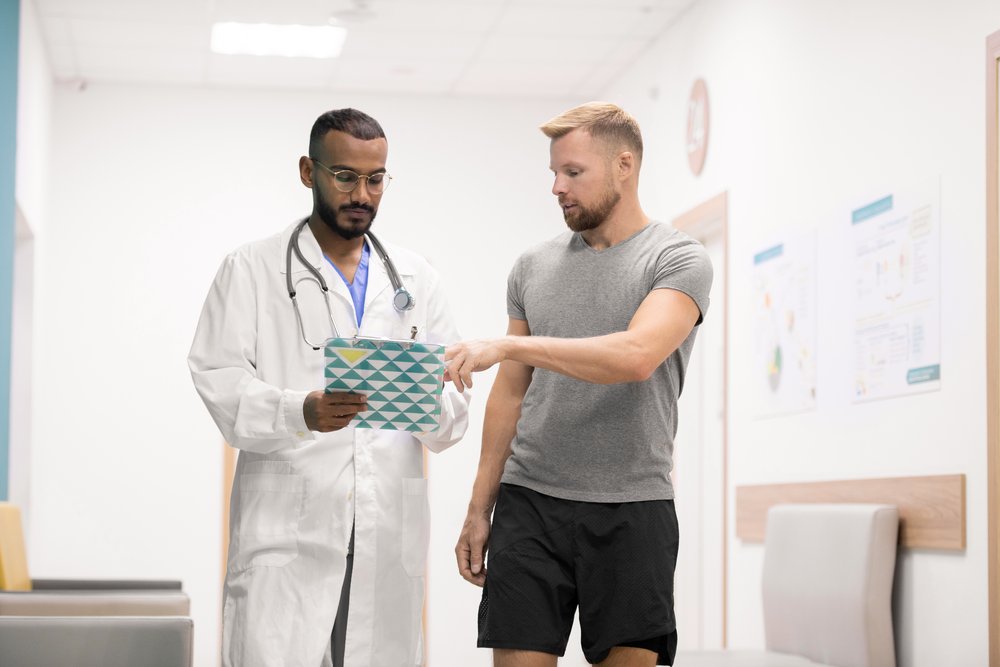Traumatic brain injuries, including concussions, are often associated with a direct hit to the head during high-impact sports, sudden falls, or vehicular accidents. But any sudden, jarring motion that causes the brain to move violently within the skull can also cause traumatic brain injuries.
Understanding Traumatic Force and Its Profound Impact on the Brain
Understanding the seriousness of concussions and traumatic force is crucial, not just for those who engage in physical activities but for everyone. By raising awareness about the potential consequences of these injuries, we can promote safety measures that could prevent long-term damage to individuals’ brains.
Traumatic Force: Not Just a Hit on the Head
Imagine a football player colliding with an opponent, a child falling off a bicycle, or even the shockwave from an explosion near military personnel. These scenarios depict the diverse ways traumatic force can occur. It’s crucial for athletes, parents of young athletes, and anyone at risk to recognize that a lack of a direct blow to the head does not equal safety from a brain injury – you can get a concussion without hitting your head. For example, whiplash from a car accident can also lead to a concussion due to rapid back-and-forth movement without any direct impact.
What Happens to Your Brain During a Concussion?
A concussion is sometimes downplayed as “just a knock on the head,” but it’s a form of mild traumatic brain injury (mTBI). When the brain is subjected to force, it can twist or bounce in the skull, stretching and damaging brain cells and triggering chemical changes in the brain.
Symptoms of Concussions
Concussion symptoms can vary widely but often include:
- Headaches or a sense of pressure in the head
- Loss of consciousness
- Confusion or feeling as if in a fog
- Dizziness or “seeing stars”
- Ringing in the ears
- Nausea or vomiting
- Slurred speech
- Delayed response to questions
- Appearing dazed
- Fatigue
These symptoms can last for days, weeks, or even longer, significantly affecting a person’s cognitive, physical, and emotional well-being. If you’re experiencing potential symptoms of a concussion, it’s important to seek medical attention right away. Remember, you can get a concussion without hitting your head, so it’s a good idea to contact a healthcare professional trained in concussion diagnosis and treatment for help if you have any of these symptoms.
Request an Appointment with Parker Performance Institute today!
The Serious Nature of Concussions
While most people recover from concussions, the seriousness of these injuries cannot be overstated. The brain requires time to heal; premature return to daily activities, sports, or work can result in prolonged symptoms and increase the risk of a second, potentially more severe, brain injury. Multiple concussions over time can lead to chronic traumatic encephalopathy (CTE), a degenerative brain condition associated with memory loss, depression, and progressive dementia.
Implications for Athletes
For athletes and those engaged in physical activities, understanding the seriousness of traumatic force is the key to the prevention and proper management of concussions. It’s vital that coaches, trainers, and healthcare professionals prioritize the health of an athlete over the game.
Parents must be vigilant for signs of concussions in their children, advocating for their safety, ensuring proper protective gear, and demanding adherence to concussion protocols in sports organizations.
Prevention and Management Strategies
Where possible, preventing concussions starts with reducing the chances of traumatic force incidents. This could involve wearing proper headgear, ensuring safe play practices, and modifying sports rules.
Management strategies include rest and prioritizing immediate medical attention. At Parker Performance Institute, we can develop a custom plan for you to ensure that your unique needs are met and that your risk levels of second concussion syndrome are low. Some of our treatment plans include:
- Exercise therapy: controlled movement and physical manipulations that improve outcomes for patients dealing with concussions
- Cognitive training: focused on improving areas of cognition, such as memory, attention, problem-solving, organization, executive function skills, and word finding
- Vision therapy and vestibular therapy: addresses dizziness and balance impairments
Concussions represent a pivotal health concern that requires increased public awareness and educational efforts. Addressing the misconceptions surrounding traumatic force and brain injuries (like knowing that you can get a concussion without hitting your head) can empower individuals to make informed decisions that prioritize long-term brain health. Whether you’re an athlete, parent of a young athlete, or someone suffering from concussion symptoms, understanding this issue is the first step to protection and recovery.
Get in touch with experts at Parker Performance Institute today to learn more about the treatment options available for concussions and other traumatic brain injuries.



